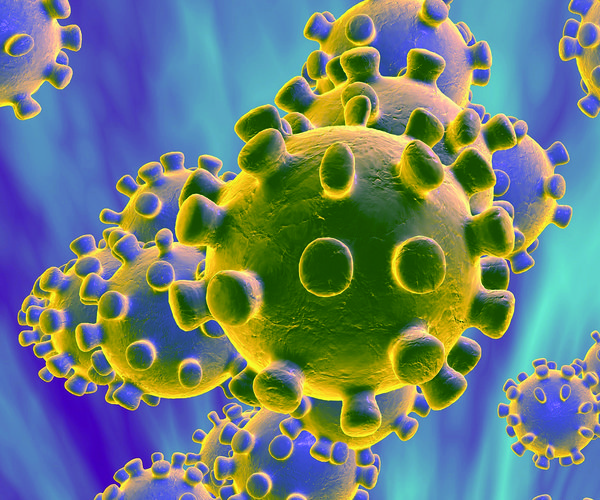By RICARDO ALONSO-ZALDIVAR Associated Press
WASHINGTON (AP) — In an extraordinary exchange, President Donald Trump and the government's top infectious disease expert, Dr. Anthony Fauci, publicly sparred Friday on whether a malaria drug would work to treat people with coronavirus disease.
The scene played out on national television during the daily White House briefing on the outbreak. Anxious for answers, Americans heard conflicting ones from a just-the-facts scientist and a president who operates on gut instinct.
Reporters asked both men — first Fauci then Trump — if a malaria drug called hydroxychloroquine could be used to prevent COVID-19, the disease caused by the virus. A day earlier, when Fauci wasn't with him at that briefing, Trump had called attention to the drug.
On Friday, Fauci took the reporter's question and got right to the point.
"No," he said. "The answer ... is no.
"The information that you're referring to specifically is anecdotal," Fauci added firmly. "It was not done in a controlled clinical trial, so you really can't make any definitive statement about it."
He went on to explain that the Food and Drug Administration is looking for a way to make the drug available to patients for emergency use, but in a manner that gives the government data about whether it's safe and effective. Fauci is director of the National Institute of Allergy and Infectious Diseases at NIH and in more than 30 years has handled HIV, SARS, MERS, Ebola and now the new coronavirus.
Currently, there is no medicine specifically approved for treating COVID-19.
But Trump stuck to what his gut was telling him. As the two men took turns at the podium, Trump said he disagreed with the notion that there is no magic drug for the coronavirus disease. "Maybe and maybe not, " he said. "Maybe there is, maybe there isn't. We have to see."
He struck an upbeat note, while trying not to directly challenge Fauci.
"I think without seeing too much, I'm probably more of a fan of that ... maybe than anybody, " he said. "But I'm a big fan, and we'll see what happens. And we all understand what the doctor said is 100% correct. It's early.
"You know, I see things that are impressive ... we're going to know soon," the president added. "And it's very effective. It's a strong — it's a strong drug. So, we'll see."
Hydroxychloroquine and a similar drug — chloroquine — are available now and can be prescribed off-label by doctors in the United States. They may interfere with the coronavirus being able to enter cells, and some scientists have reported possible encouraging signs in test-tube and other small studies.
Other scientists are skeptical that those promising test-tube results will translate to benefits for patients.
Fauci has a history of being the fact-based counterpoint to the Trump administration's upbeat assessments of the coronavirus outbreak.
After Fauci said weeks ago that even with all deliberate speed a vaccine could take a year to 18 months, Trump told a political rally one could be ready "relatively soon."
As administration officials repeatedly assured the public that coronavirus tests were rapidly becoming available, Fauci at a congressional hearing said the lack of widespread testing was "a failing" of the system. Although Fauci has publicly supported Trump's travel restrictions to try to keep the virus out, he warned the public the worst was coming even as Trump suggested the crisis was under good control.
On Friday at the White House podium, Fauci's caution did little to dampen Trump's enthusiasm.
"Look, it may work and it may not work and I agree with the doctor," Trump said. "It may work, it may not work. I feel good about it. That's all it is. Just a feeling. You know, I'm a smart guy. I feel good about it. And we're going to see. You're going to see soon enough."
The two even debated the safety of the malaria drug, with Trump saying it has a proven record and Fauci cautioning that safety has to be validated again because it would be used to treat the coronavirus disease, which is different.
In the end, the scientist seemed to be trying to find a way to avoid a direct confrontation with the president.
"No, there really isn't that much of a difference in many respects with what we're saying," Fauci tried to explain. "The president feels optimistic about something. His feeling about it. What I'm saying is that it might — it might be effective."
It wasn't just Trump with whom Fauci took issue.
In answer to a reporter's question, he called a suggestion by Republican Sen. Ron Johnson of Wisconsin that the administration was overreacting, given that thousands of people die on the highways every year, a "false equivalency." He added: "I don't think with any moral conscience you can say, 'Why don't we just let it rip and happen and let X percent of the people die?'"
And asked about economist Kevin Hassett's suggestion that all Americans be tested so that uninfected people can get back to work, Fauci said, "I don't connect the dots there." Even if it might be nice to know the test results, it will take social distancing to slow the spread.
For most people, the virus causes only mild or moderate symptoms, such as fever and cough. For some, especially older adults and people with existing health problems, it can cause more severe illness, including pneumonia.
___
The Associated Press receives support for health and science coverage from the Howard Hughes Medical Institute's Department of Science Education. The AP is solely responsible for all content.





